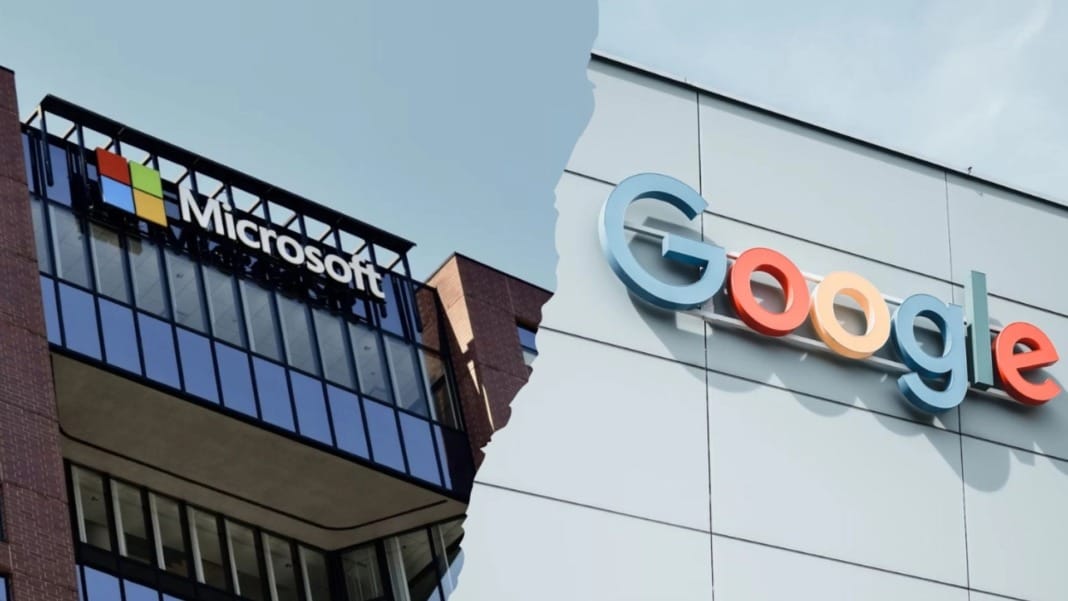Microsoft has accused Google of covertly funding a campaign to challenge it in the cloud services sector, aiming to influence regulators in the European Union and the UK. According to Microsoft, Google has allegedly set up a lobbying group called the Open Cloud Coalition, which is purportedly a coalition of cloud service providers and industry figures committed to fair competition in cloud services. However, Microsoft argues that Google is concealing its role as the group’s main backer, aiming to undermine Microsoft’s cloud business in Europe.
Microsoft’s deputy general counsel, Rima Alaily, shared these claims in a detailed blog post, arguing that Google went to “great lengths to obfuscate its involvement, funding, and control” of the coalition. Microsoft alleges that Google hired a European lobbying firm to assemble this coalition, giving it a veneer of neutrality while acting as the primary funder behind the scenes.
Allegations of proxy members and secret funding
Microsoft asserts that Google has recruited a few European cloud providers as the public face of the Open Cloud Coalition. While these smaller companies appear as the main representatives, Microsoft believes Google is orchestrating the group’s direction. According to Microsoft, the coalition is ultimately expected to direct its efforts at damaging Microsoft’s reputation and business in the European cloud market.
Microsoft points to specific evidence, including a recruitment document that does not mention Google’s involvement in the coalition, which suggests Google is attempting to stay in the background. Microsoft also names Nicky Stewart, who previously co-authored a complaint against Microsoft and Amazon Web Services as part of the UK’s antitrust investigation into cloud services. Stewart’s involvement in this campaign raises further questions for Microsoft about Google’s level of control over the coalition.
As for potential incentives offered to these smaller cloud companies, Microsoft speculates that Google may provide financial benefits or discounts to encourage their participation. Microsoft claims one company was approached with an offer to join the coalition with the explicit aim of attacking Microsoft’s cloud computing business in Europe and the UK. Despite these claims, Microsoft has not publicly provided extensive documentation to verify these accusations.
Google’s response and cloud competition concerns
In response to the accusations, a Google spokesperson said that the company has been vocal about concerns over Microsoft’s cloud licensing practices, stating that Microsoft’s tactics limit customer choice and harm cybersecurity and innovation. Google has also pointed to four separate blog posts outlining its stance on Microsoft’s practices, and it maintains that many in the industry share these views.
Microsoft believes that Google’s alleged actions are motivated by an increasing regulatory focus on Google’s business practices, especially in search, advertising, and mobile app markets. Microsoft claims that Google is currently the target of at least 24 antitrust investigations worldwide, including a high-profile Department of Justice case in the US. This could lead to a potential breakup of Google’s business units.
Rima Alaily remarked in her post, “At a time when Google should be addressing legitimate questions about its business practices, it is instead using its vast resources to target competitors. It is disappointing that, rather than tackling issues facing its own business, Google has chosen to strengthen its cloud computing platform, Google Cloud Platform, by attempting to undermine ours.”
A shifting focus in Google’s business growth
The allegations arose following reports that Google attempted to derail an antitrust settlement that Microsoft was negotiating with the Cloud Infrastructure Services Providers in Europe (CISPE). In July, Bloomberg reported that Google had offered CISPE €470 million to press forward with litigation against Microsoft, a proposal that CISPE ultimately declined.
With growth in digital advertising slowing, Google has turned to the cloud market to bolster its revenue. In 2023, Google’s cloud division reached profitability for the first time and reported a US$900 million profit in the first quarter of this year. For Microsoft, Google’s alleged activities indicate a fierce battle for dominance in Europe’s cloud sector, where both companies seek to secure their place in a rapidly expanding market.





